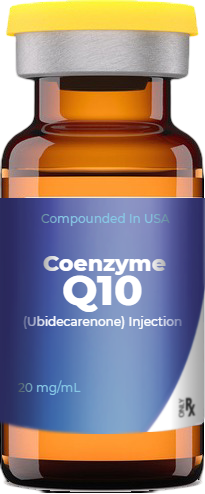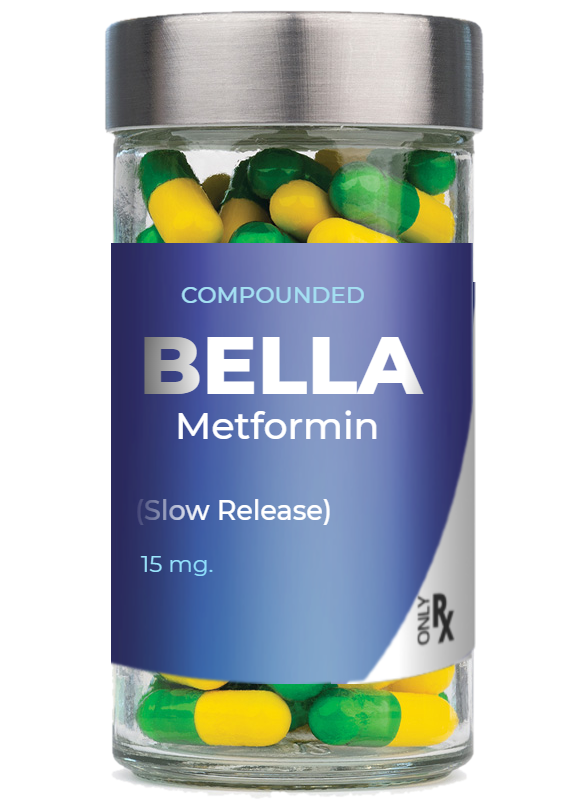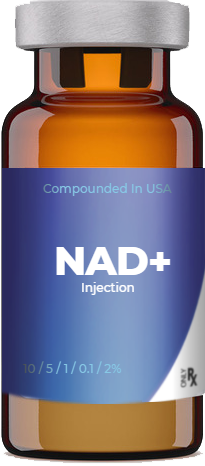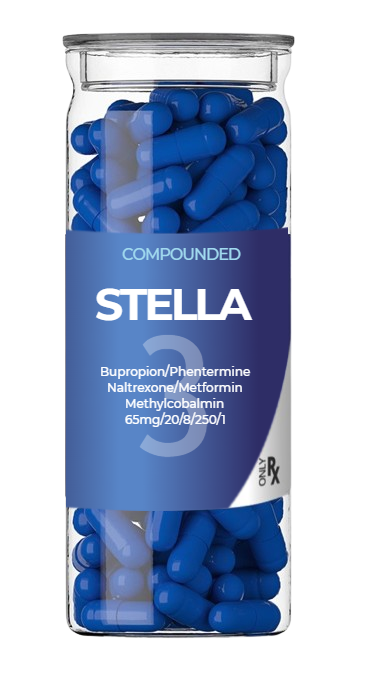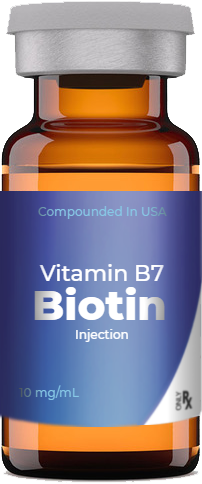Mechanism of Action
Coenzyme Q10 is an essential cofactor of intra-complex electron transportation in adenosine triphosphate (ATP) synthesis, also referred to as oxidative phosphorylation. It is vital to the health of all cells, and therefore all tissues and organs, in the body. Cells constantly use ATP as an energy source to conduct biological reactions.
CoQ10 is an antioxidant and therefore prevents free radical generation and modifications of DNA, proteins, and lipids.
CoQ10 is an endogenous inhibitor of platelets. Exogenous CoQ10 is an upregulator of the cAMP/PKA pathway, an activator of the A2A adenosine receptor, an inhibitor of phosphodiesterase 3A phosphorylation, and a significant inhibitor of vitronectin-receptor (CD51/CD61) expression.
CoQ10 is a ligand and an agonist of the PPARα/γ receptor.37 It also functions as an antioxidant in the mitochondria by regenerating alpha-tocopherol from its phenoxyl radical.
CoQ10 is an inotrope.
Indications
There is no data on the indications of coenzyme Q10 intramuscular injections. Oral coenzyme Q10 has low bioavailability. Taking CoQ10 capsules with food has been shown to increase intestinal absorption of CoQ10 threefold.
One study found that oral doses of CoQ10 of 100 mg or higher can cause mild insomnia in some individuals. Some patients may benefit from taking CoQ10 in the morning.
There is no established optimum dose of exogenous coenzyme Q10 supplementation. The suggested daily dose for healthy adults is typically between 30 mg to 100 mg per day. Adults diagnosed with a medical condition may choose to take up to 60 mg to 1,200 mg per day.49 A risk assessment of oral exogenous CoQ supplementation reports the observed safe level (OSL) or highest observed intake (HOI) for oral CoQ10 as up to 1,200 mg per day for adults and up to 10 mg/day in children.
There is very little data on the safety and efficacy of CoQ10 supplementation in children.
Precautions
Patients with a known allergy to Coenzyme Q10 should not take this product.
Coenzyme Q10 is eliminated from the body via the biliary tract. It may increase the risk of CoQ10 accumulation in patients with biliary obstruction or hepatic impairment.
The literature is contradictory as to whether coenzyme Q10 has antihypertensive properties. In some clinical trials, coenzyme Q10 lowered both systolic and diastolic blood pressure. Patients with low blood pressure should use precaution when taking CoQ10.
As an antioxidant, CoQ10 is contraindicated in patients undergoing chemotherapy and/or radiation therapy. CoQ10, and other antioxidants, may increase the risk of recurrence in cancer patients undergoing treatment.
Pregnancy/Breastfeeding
The safety and efficacy of CoQ-10 injections in pregnancy and breastfeeding have not been established. As such, it is difficult to determine a drug-associated risk of adverse developmental outcomes. Women who are pregnant or breast-feeding should avoid using this product.
CoQ-10 is a natural component found in human breast milk. Currently, there is no data available regarding the effects of exogenous synthetic CoQ-10 on CoQ-10 concentrations in breast milk. Additionally, there is no data on how exogenous synthetic CoQ-10 affects milk production or its effects on the breastfed infant.
Initial studies show that oral exogenous synthetic CoQ10 may reduce the risk of developing preeclampsia during pregnancy, when administered daily to pregnant women with an increased risk for preeclampsia, starting at 20 weeks gestation.
Side Effects
Limited research on the safety and efficacy of CoQ10 signifies that not all side effects are known. So far, major side effects of oral coenzyme Q10 supplementation have not been reported. There is no data on the side effects of intramuscular or intravenous injection of CoQ10.
Recorded side effects of oral CoQ10 supplementation in adults include rash, epigastric pain, nausea, headache, fatigue, heartburn, increased involuntary movements, anorexia, vomiting, diarrhea, pain in the upper abdomen, dizziness, irritability, sensitivity to light, and elevated liver enzymes.
In children diagnosed with a mitochondrial disorder, oral CoQ10 supplementation has caused mild side effects, including nausea, diarrhea, heartburn, and less commonly reported are headache, dizziness, irritability, and agitation.
There is no data on the short-term or long-term side effects associated with intravenous and intramuscular injection of CoQ10 in humans. There is little data on the long-term effects of oral CoQ10 supplementation. A review of clinical studies reveals that no serious or frequent side effects were observed in adults with oral administration of CoQ10 when taking 200 mg/day for up to 12 months or 100 mg/day for up to 6 years. However, the review also notes that these studies were not designed to examine side effects and therefore suggests that monitoring side effects was not a priority during these studies. One study saw impairments in cognitive and sensory function in mice after prolonged administration of high levels of CoQ10.
The literature is contradictory as to whether coenzyme Q10 lowers blood pressure. In some clinical trials, coenzyme Q10 lowered both systolic and diastolic blood pressure levels. Coenzyme Q10 supplementation is contraindicated for patients who are taking anti‐hypertensive medication. Patients with low blood pressure should use precaution when taking CoQ10.
Storage
Store this medication at 68°F to 77°F (20°C to 25°C) and away from heat, moisture and light. Keep all medicine out of the reach of children. Throw away any unused medicine after the beyond use date. Do not flush unused medications or pour down a sink or drain.

